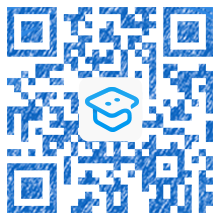精華0
威望2
K幣17 元
注冊時間2020-2-18
在線時間0 小時
最后登錄2020-7-5
新手上路

- 精華
- 0
- 威望
- 2
- K幣
- 17 元
- 注冊時間
- 2020-2-18
|
一、英譯中
Historical knowledge is no more and no less than carefully and critically constructed collective memory.
Without individual memory, a person literally loses his or her identity, and would not know how to act in encounters with others. Imagine waking up one morning unable to tell total strangers from family and friends! Collective memory is similar, though its loss does not immediately paralyze everyday private activity. But ignorance of history-that is, absent or defective collective memory-does deprive us of the best available guide for public action, especially in encounters with outsiders, whether the outsiders are another nation, another civilization, or some special group within national borders.
Often it is enough for experts to know about outsiders, if their advice is listened to. But democratic citizenship and effective participation in the determination of public policy require citizens to share a collective memory, organized into historical knowledge and belief. Otherwise, agreement on what ought to be done in a given situation is difficult to achieve. Agreement on some sort of comfortable falsehood will not do, for without reasonably accurate knowledge of the past, we cannot expect to accomplish intended results, simply because we will fail to foresee how others are likely to react to anything we decide on. Nasty surprises and frustrating failures are sure to multiply under such circumstances.
This value of historical knowledge obviously justifies teaching and learning about what happened in recent times, for the way things are descends from the way they were yesterday and the day before that. But in fact, institutions that govern a great deal of our everyday behavior took shape hundreds or even thousands of years ago. Having been preserved and altered across the generations to our own time, they are sure to continue into the future.
Memory is not something fixed and forever. As time passes, remembered personal experiences take on new meanings. A bitter disappointment may come to seem a blessing in disguise; a triumph may later turn sour, while something trivial may subsequently loom large-all because of what happens later on. Collective memory is quite the same. Historians are always at work reinterpreting the past, asking new questions, searching new sources and finding new meanings in old documents in order to bring the perspective of new knowledge and experience to bear on the task of understanding the past. This means, of course, that what we know and believe about history is always changing. In other words, our collective, codified memory alters with time just as personal memories do, and for the same reasons.
二、中譯英(不完整)
隨著文化多樣性的發展,演講會變得越來越復雜,語言是造成兩種文化產生差異的首要因素,語言之間的差別不僅僅牽扯到語詞,更涉及思維甚至世界觀。要成為有效的英語演講者,自然需要具備文化層面上的溝通能力所為,跨文化溝通能力。
三、作文(字數不限)
On the relationship between extensive reading and critical thinking.來自Android客戶端 |
|


